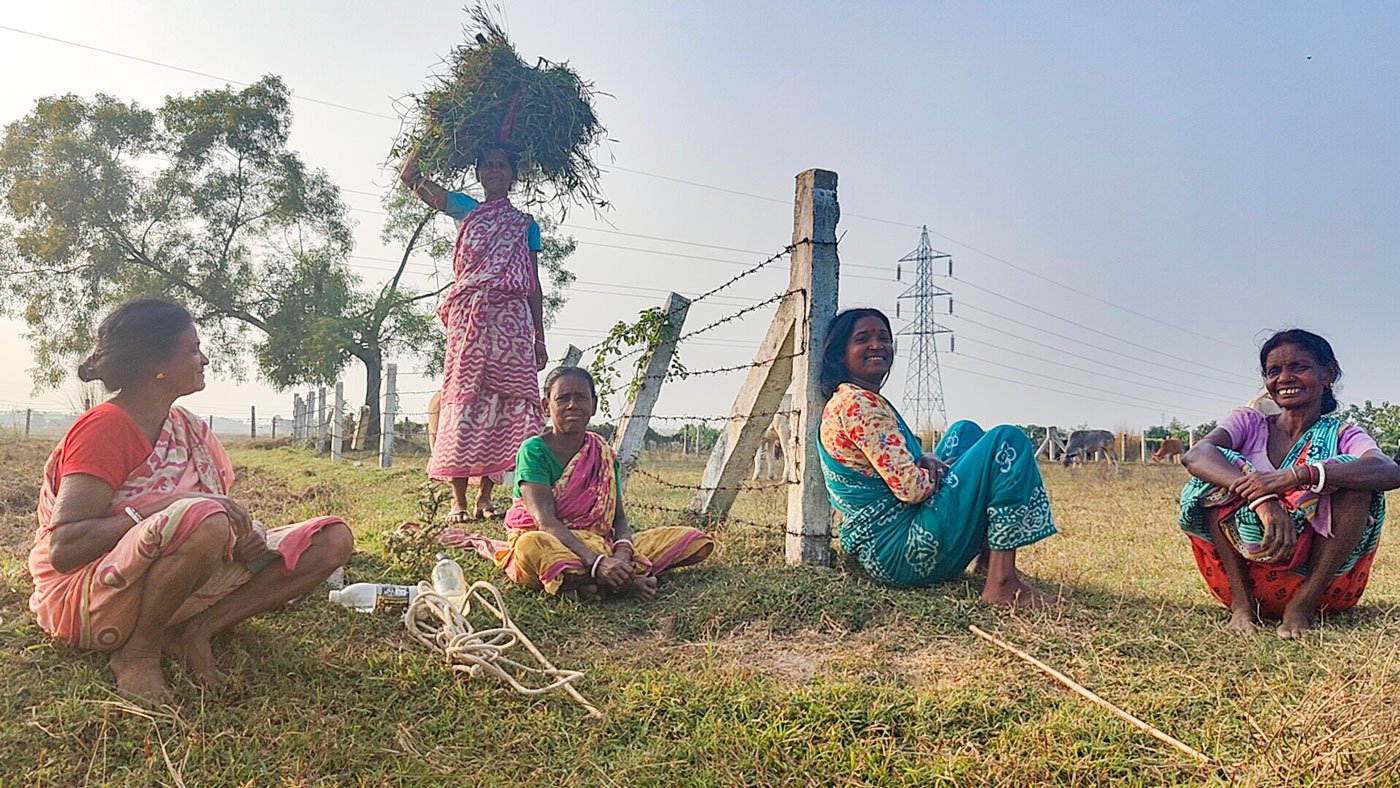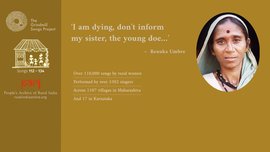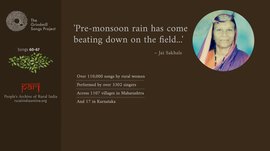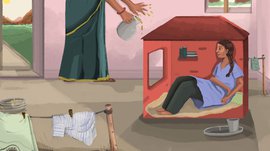“I manage [to have] such a day once a year.”
Swapnali Dattatreya Jadhav is referring to the events of December 31, 2022. The Marathi film Ved had just been released. A romantic film with some known faces, it did not reach national attention. But for domestic worker Swapnali it was the film of choice on her day off – only one of two in the entire year.
“It was the New Year, that’s why. We even ate food outside, somewhere in Goregaon,” says the 23-year-old fondly recalling her time off.
The rest of the year, it’s a hard daily grind for Swapnali who works long hours cleaning utensils, washing clothes and doing other household chores in six houses in Mumbai. But rushing between houses – a 10 to 15 minute respite, she also listens to Marathi songs on her phone. “I can pass a bit of time listening to these,” she says smiling at the joy those moments give her.
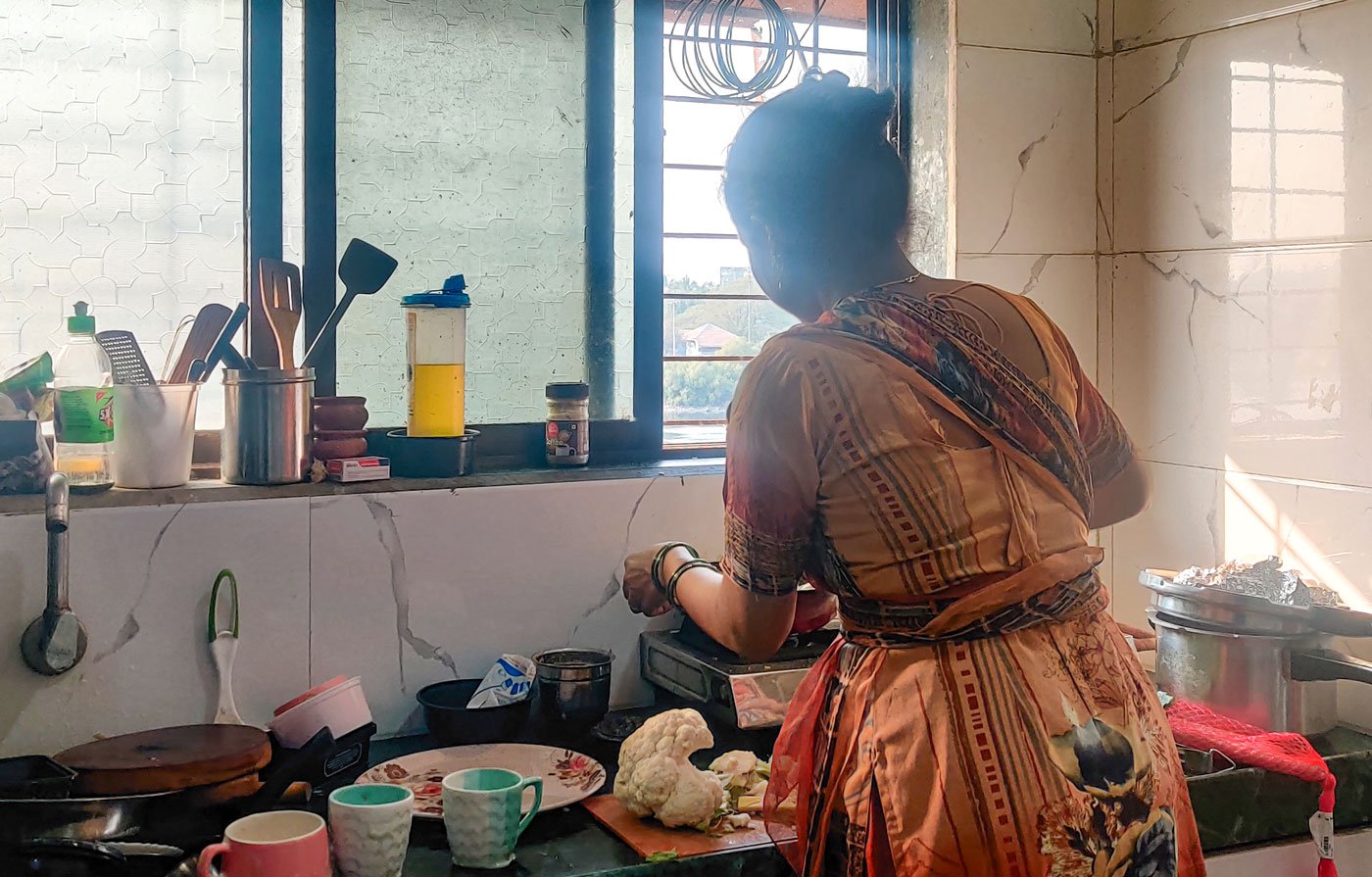
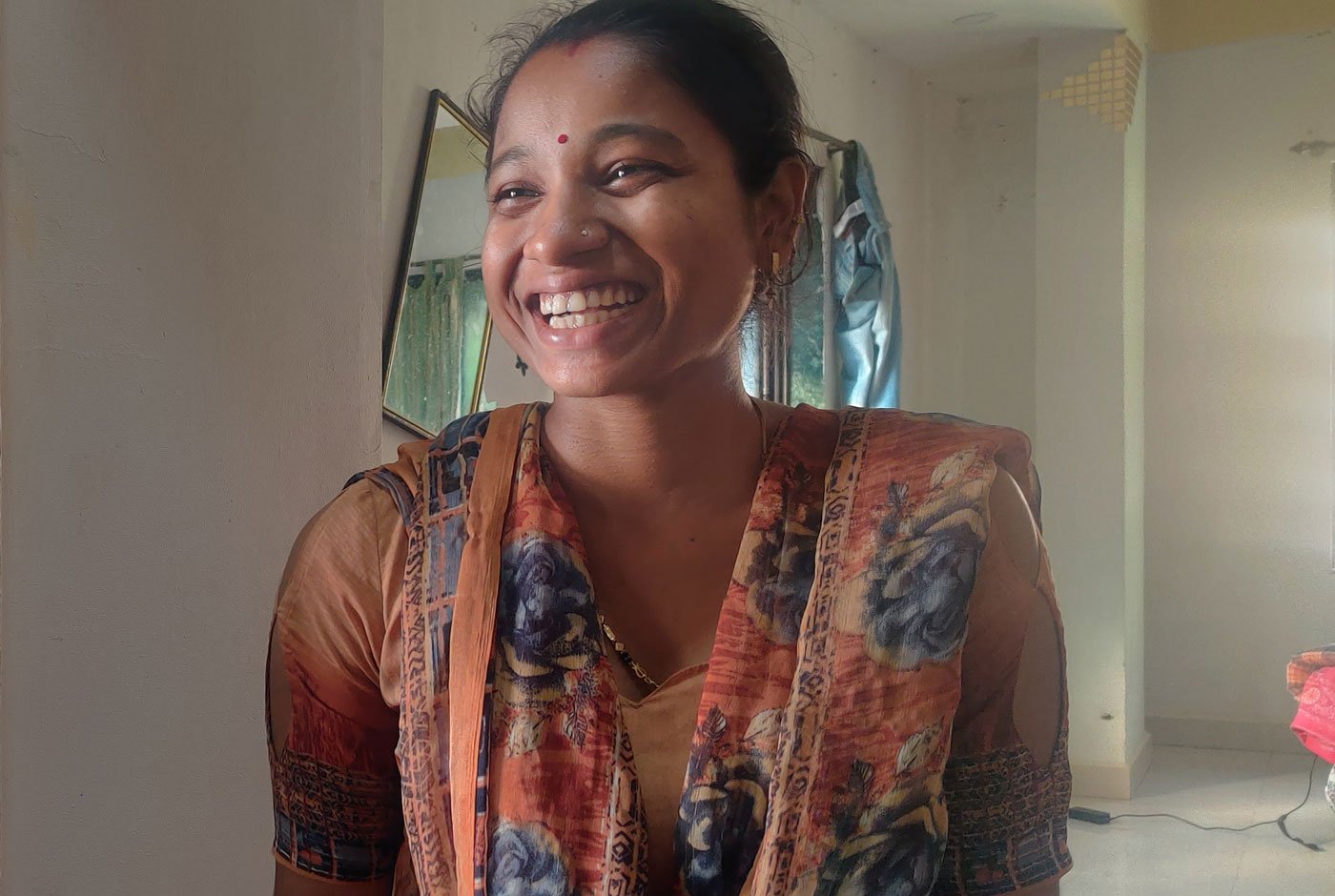
Swapnali Jadhav is a domestic worker in Mumbai. In between rushing from one house to the other, she enjoys listening to music on her phone
Access to a phone does promise some relaxation, as Neelam Devi points out. The 25-year-old says, “I like to watch Bhojpuri and Hindi movies on the mobile [phone] when I can.” A migrant agricultural worker, she has come from her home in Bihar’s Mohammadpur Ballia village to work in Mokameh Taal – over 150 kilometres away – for the harvest month.
She arrived here with 15 other women labourers who will cut and carry bundles of pulses from the fields to the storage area. They earn in kind – a bundle of pulses for every 12 bundles they cut and carry. Pulses are the highest priced item in their food and as Suhagini Soren points out, “We can eat this through the year and also distribute it to our close relatives.” They manage to get about a quintal of pulses as a month’s wages, she adds.
Their husbands migrate even further away for jobs and their children have stayed back home in the care of others; the very young just travel with them.
Talking as she twists the rough paddy straw into a rope, she tells PARI that here away from home she doesn’t get to watch movies on her mobile because, “there is no electricity to charge them.” Neelam owns her phone – a rarity in rural India where only 31 per cent of women had access to a mobile phone as compared to 61 per cent of men, says the
Digital Divide Inequality Report 2022
, published by Oxfam India.
But Neelam has found a way out: as most tractors are parked outside and close to the workers’ makeshift huts, “We charge our phone on the tractor to make important calls and then put the phone away. We would definitely have watched movies had there been proper electricity,” she adds.
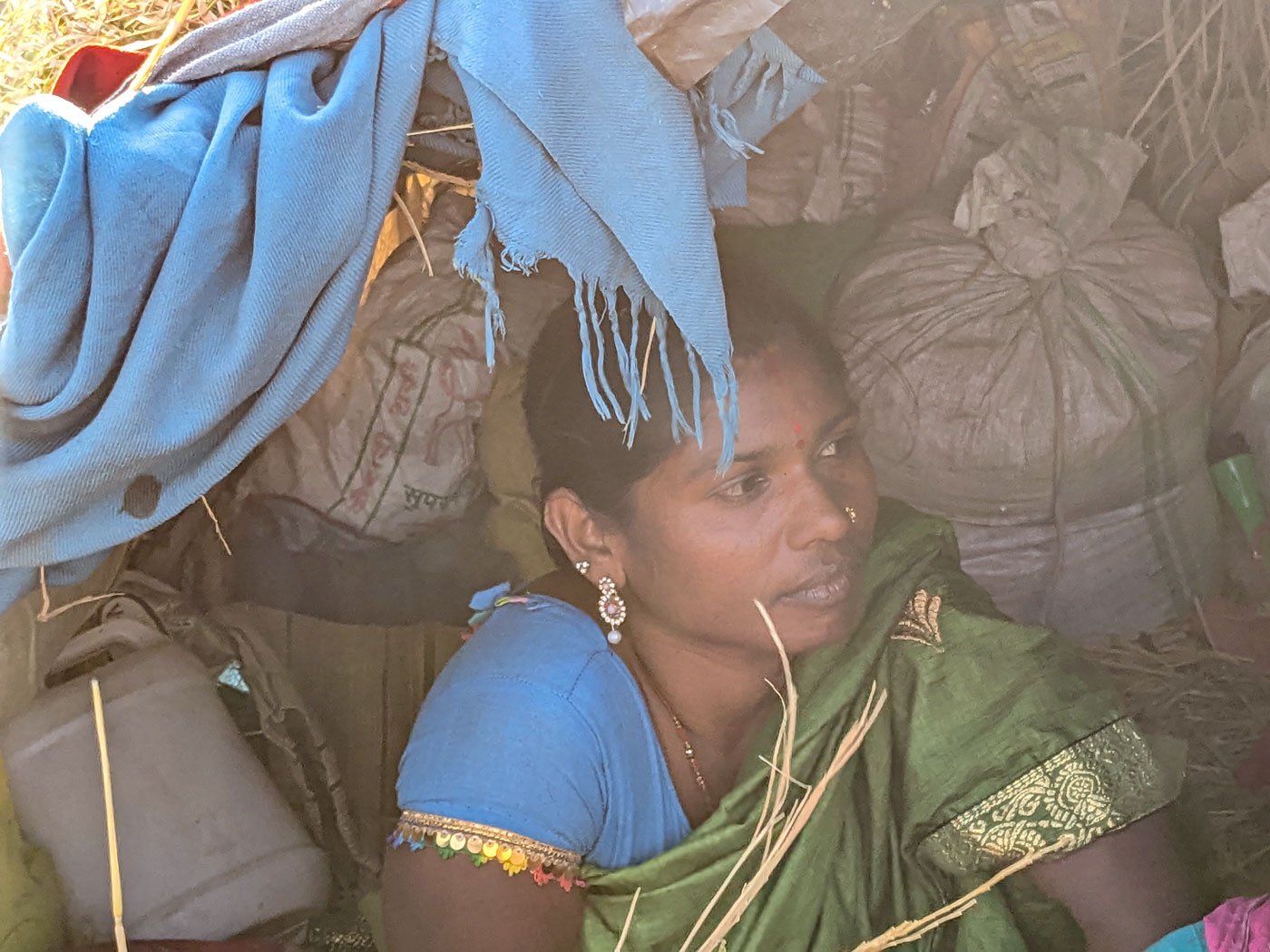
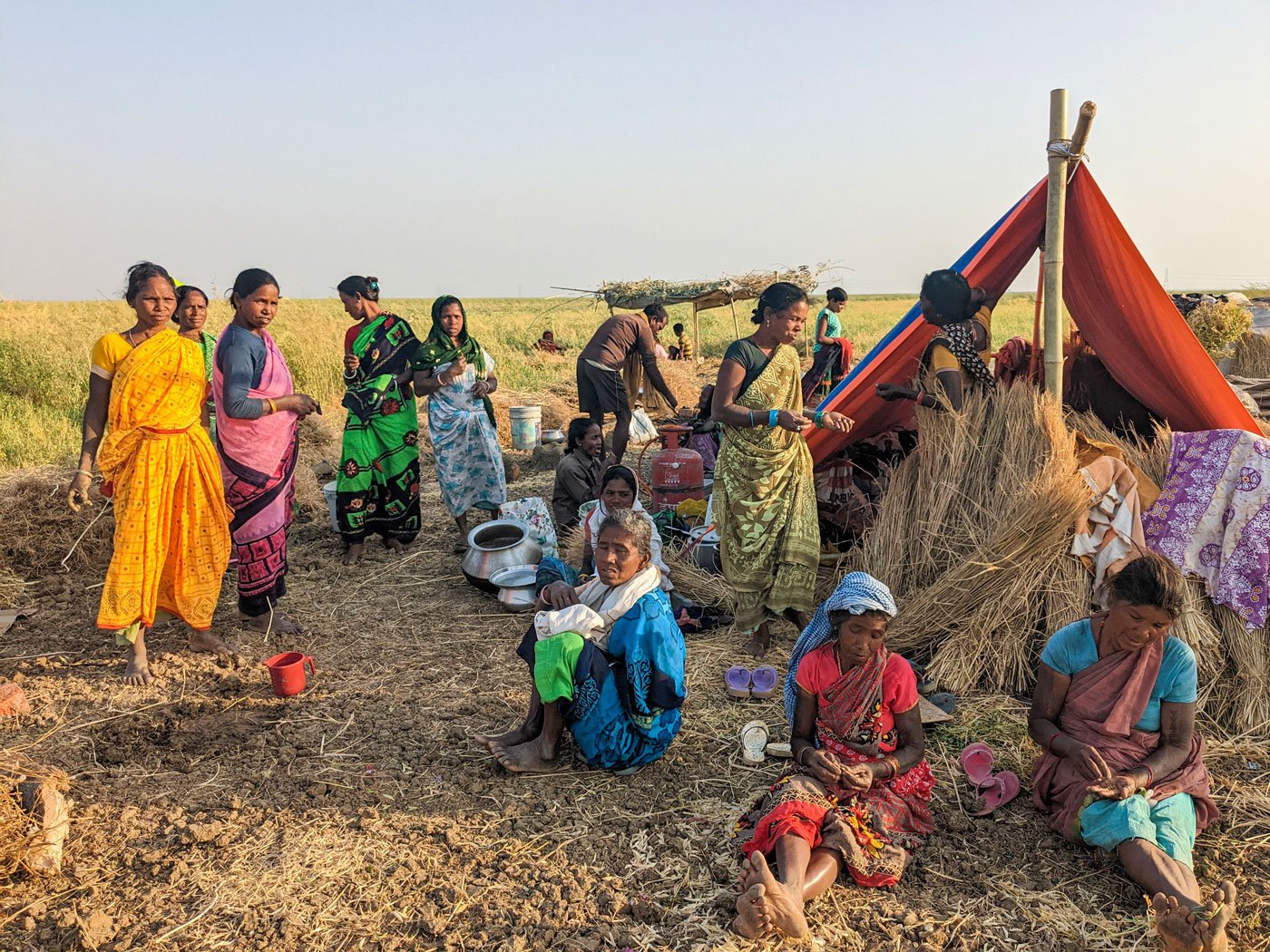
Left: Neelam Devi loves to watch movies on her phone in her free time. Right: Migrant women labourers resting after harvesting pulses in Mokameh Taal in Bihar
The women here in Mokameh Taal have been at work since 6 a.m., finally putting down their tools at midday as the temperature rises. Then it’s time to fetch water from a tubewell for their households. After which, as Anita says, “Every person should take some time out for oneself.”
A Santhal Adivasi from Narainpur village in Giridih district of Jharkhand she says, “I sleep in the afternoon because it is hot and we can’t work.” The daily wage agricultural worker has migrated from Jharkhand to Bihar to harvest pulses and other crops here in Mokameh Taal in March.
In the semi-harvested field sit a dozen women, their tired legs stretched out in front of them, the twilight hour approaching.
Even though tired, the women agricultural labourers hands are not idle. They are busy separating and cleaning pulses or making ropes of paddy straw to carry the next days’ bundles. Nearby are their homes with polythene sheet roofing and the three-feet high walls made with the the straw of dried pulses. Their earthen
chulhas
will soon be lit as they get started with preparing the evening’s meal, their chit-chat to be continued the next day.
As per NSO data from 2019, females in India spent an average 280 minutes every day on unpaid domestic and caregiving services for household members. The corresponding figure for males was just 36 minutes.
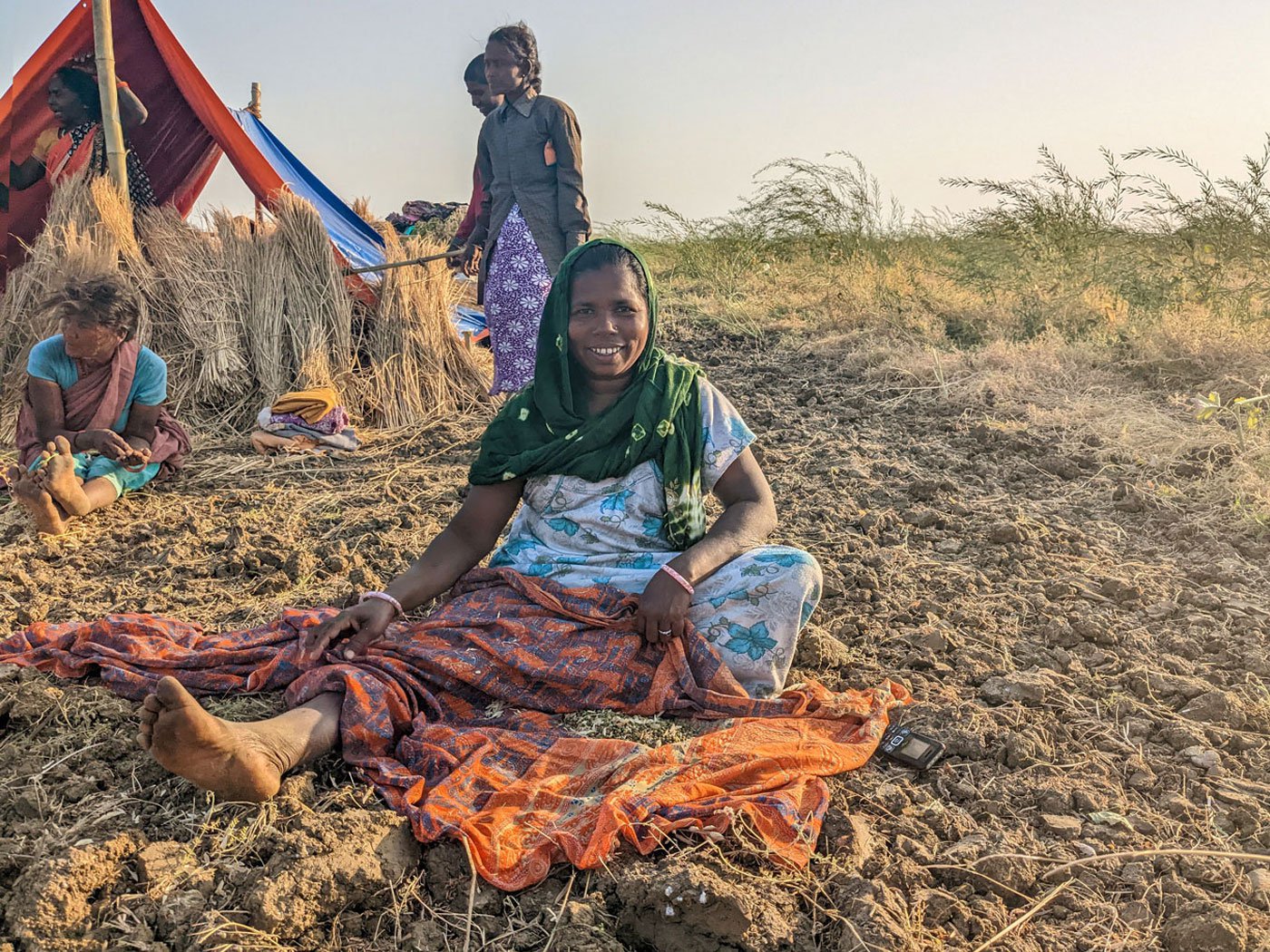
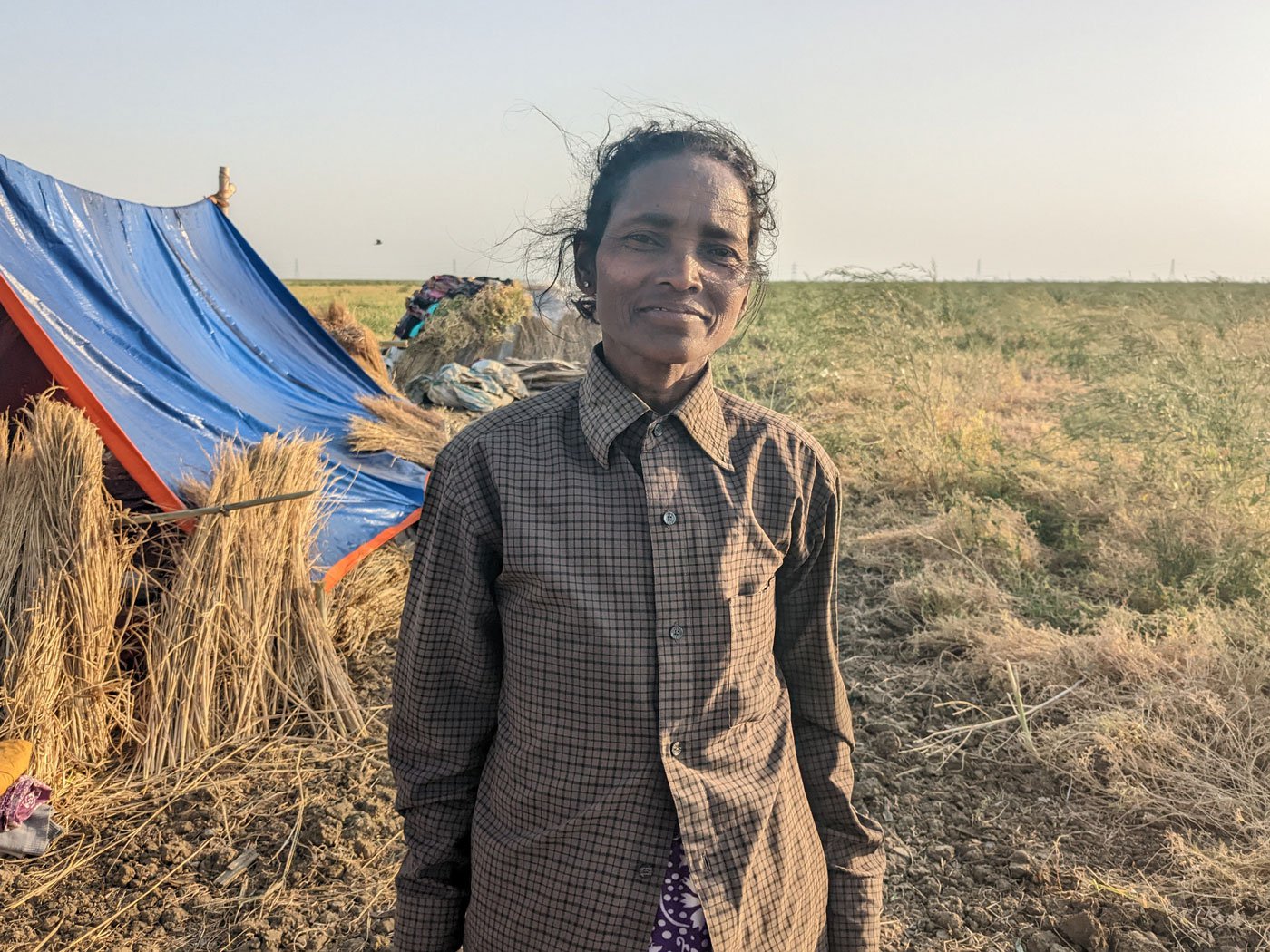
Anita Marandi (left) and Suhagini Soren (right) work as migrant labourers in Mokameh Taal, Bihar. They harvest pulses for a month, earning upto a quintal in that time
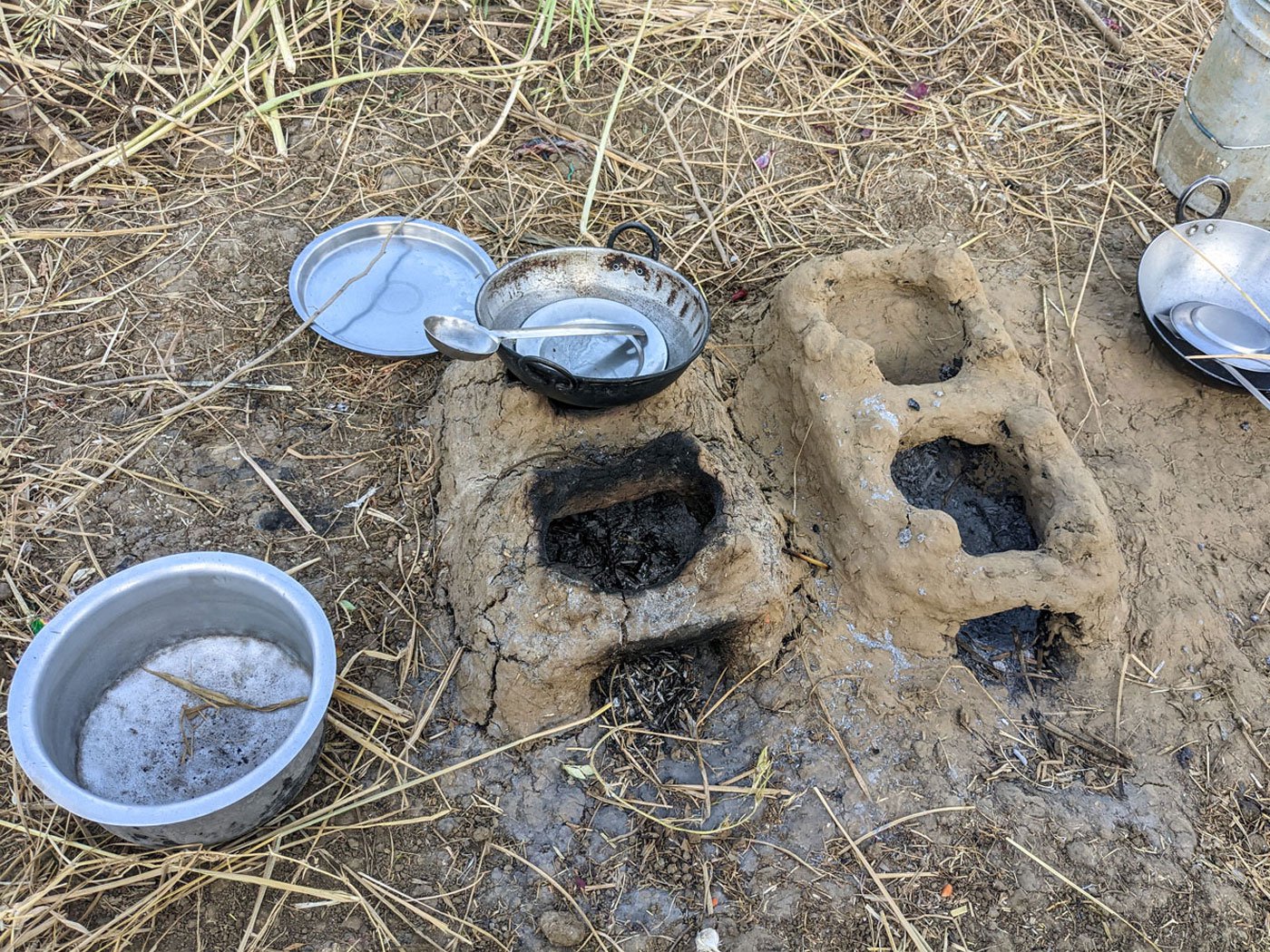
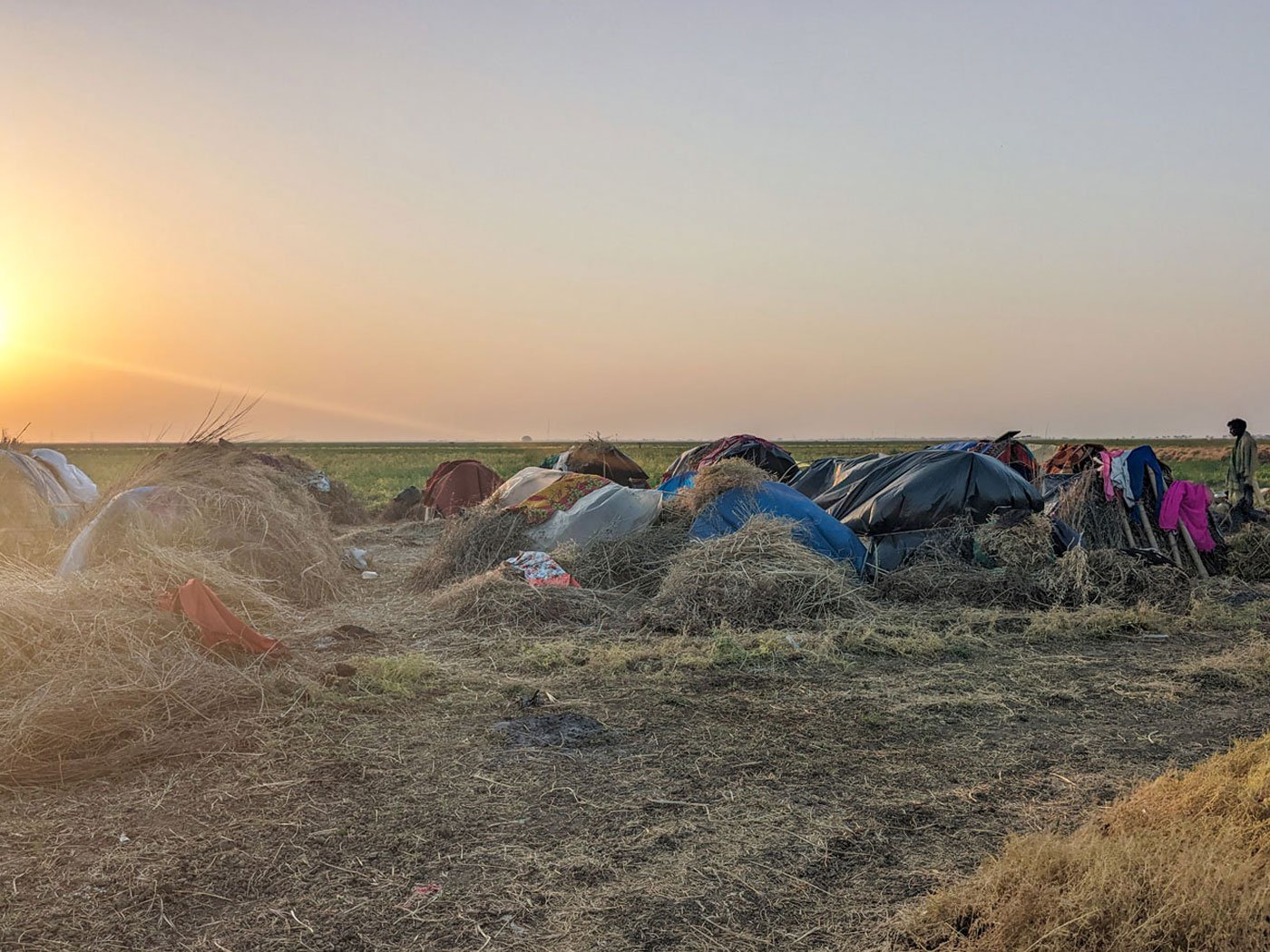
Left: The labourers cook on earthen chulhas outside their makeshift homes of polythene sheets and dry stalks. Right: A cluster of huts in Mokameh Taal
*****
Enjoying unstructured time together is what Santhal Adivasi girls Arati Soren and Mangali Murmu look forward to most. The cousins, both 15 years old, are children of landless agricultural workers here in Paruldanga village in West Bengal. “I love to come here and see the birds. Sometimes we pluck fruits and eat them together,” says Arati as they both sit under a tree, watching their cattle grazing nearby.
“At this time [harvest season], we don’t have to go far away as the animals can graze on stubble. We get time to just sit under some tree or in the shade,” she adds.
PARI met them on a Sunday when their mothers were visiting a relative in a neighbouring village also in Birbhum district. “My mother usually takes the cattle to graze, but on Sundays, I take the cattle for grazing. I like to come here and have some time with Mangali,” says Arati smiling at her cousin and adding, “she is my friend too.”
For Mangali, grazing is a daily chore. She studied till Class 5 and had to drop out as her parents could not afford to continue her education. “Then lockdown came and it became harder for them to send me back to school,” says Mangali who also does the cooking at home. Her role in grazing the animals is critical as rearing cattle is the only steady income in this arid plateau region.
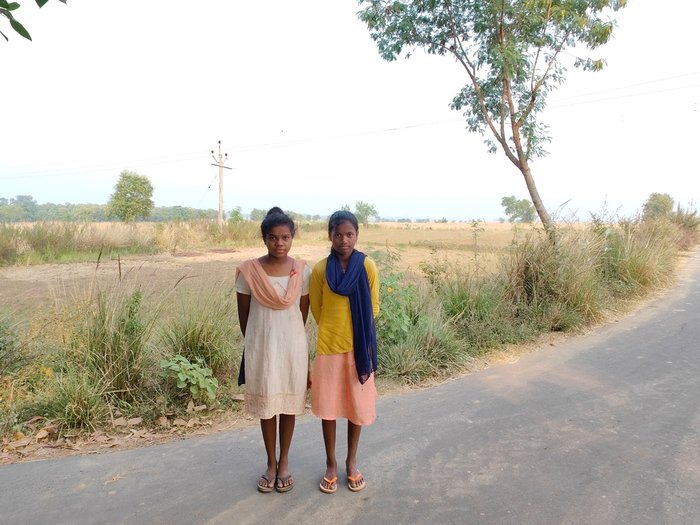
Cousins Arati Soren and Mangali Murmu enjoy spending time together
In rural India only 31 per cent of women had access to a mobile phone as compared to 61 per cent of men, says the Digital Divide Inequality Report 2022, published by Oxfam India
“Our parents have feature phones. We sometimes talk about these things [owning a phone] when we are together,” says Arati. Close to 40 per cent of mobile subscribers in India do not have smart phones, says the Digital Divide Inequality Report 2022 , and their experience is not unusual.
The mobile phone appears in most conversations around leisure. And sometimes around work too, as farm labourer Sunita Patel points out angrily: “When we go to the towns to sell our vegetables and shoutout to people to buy them, they [urban women] don’t even don’t bother to reply to us as they are engaged on their phones. It is very painful and make me angry.”
Sunita is resting with a group of women labourers after lunch in a paddy field in Raka village in Rajnandgaon district of Chhattisgarh. some of them were sitting and others catching a quick shut eye.
“We work in the field through the year. We don’t get leisure.” says Dugdi Bai Netam matter-of-factly. An elderly Adivasi, she gets a widow’s pension but still has to do daily wage work. “Now we are busy removing weeds in the paddy field; we work round the year.”
Still smarting at the memory, Sunita agrees with her saying, “We don’t get leisure! Leisure is the luxury of urban women.” A good meal would count as leisure she says: “My heart says to have nice foods moving around but due to lack of money it is never possible.”
*****
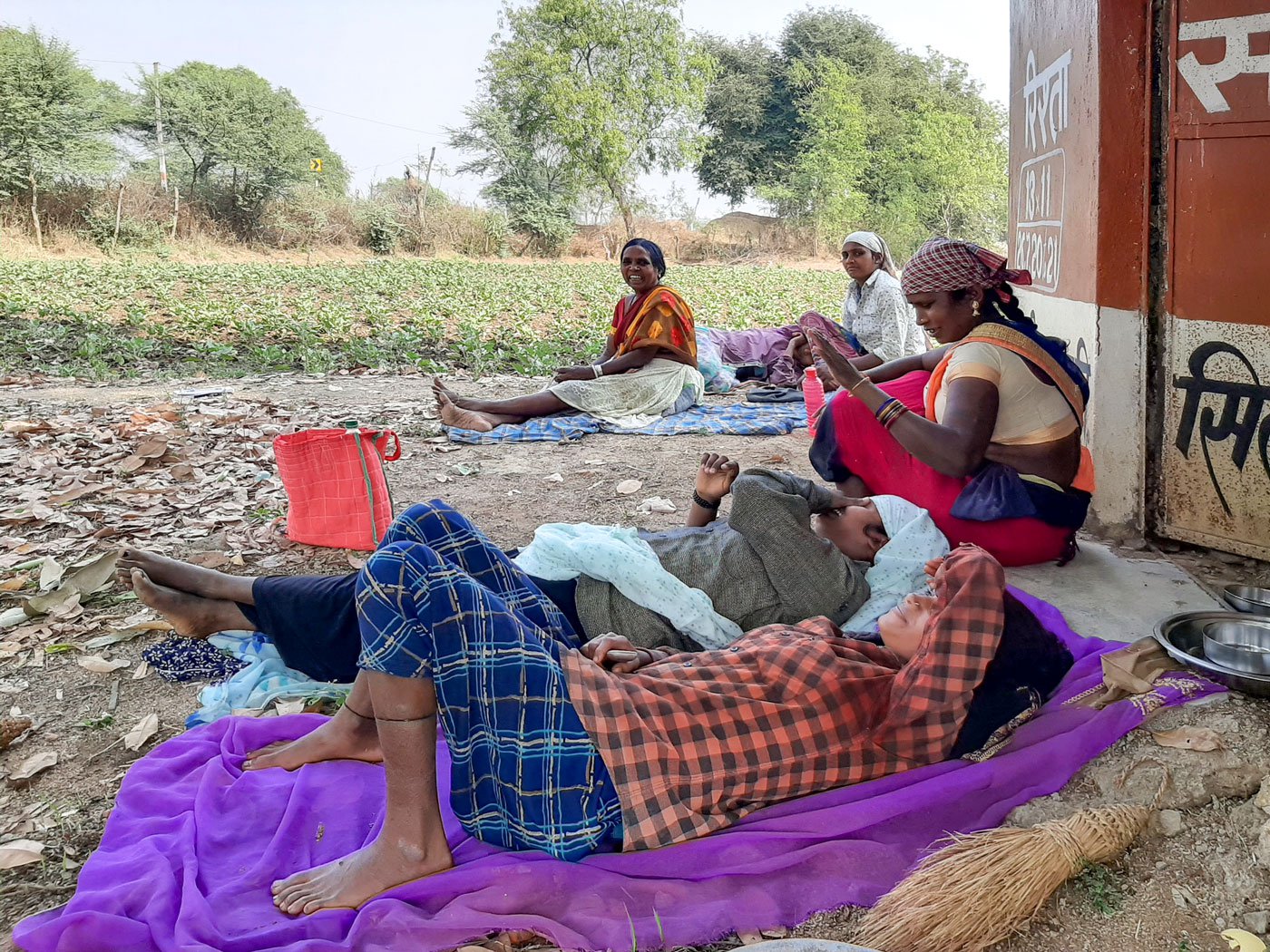
A group of women agricultural labourers resting after working in a paddy field in Raka, a village in Rajnandgaon district of Chhattisgarh
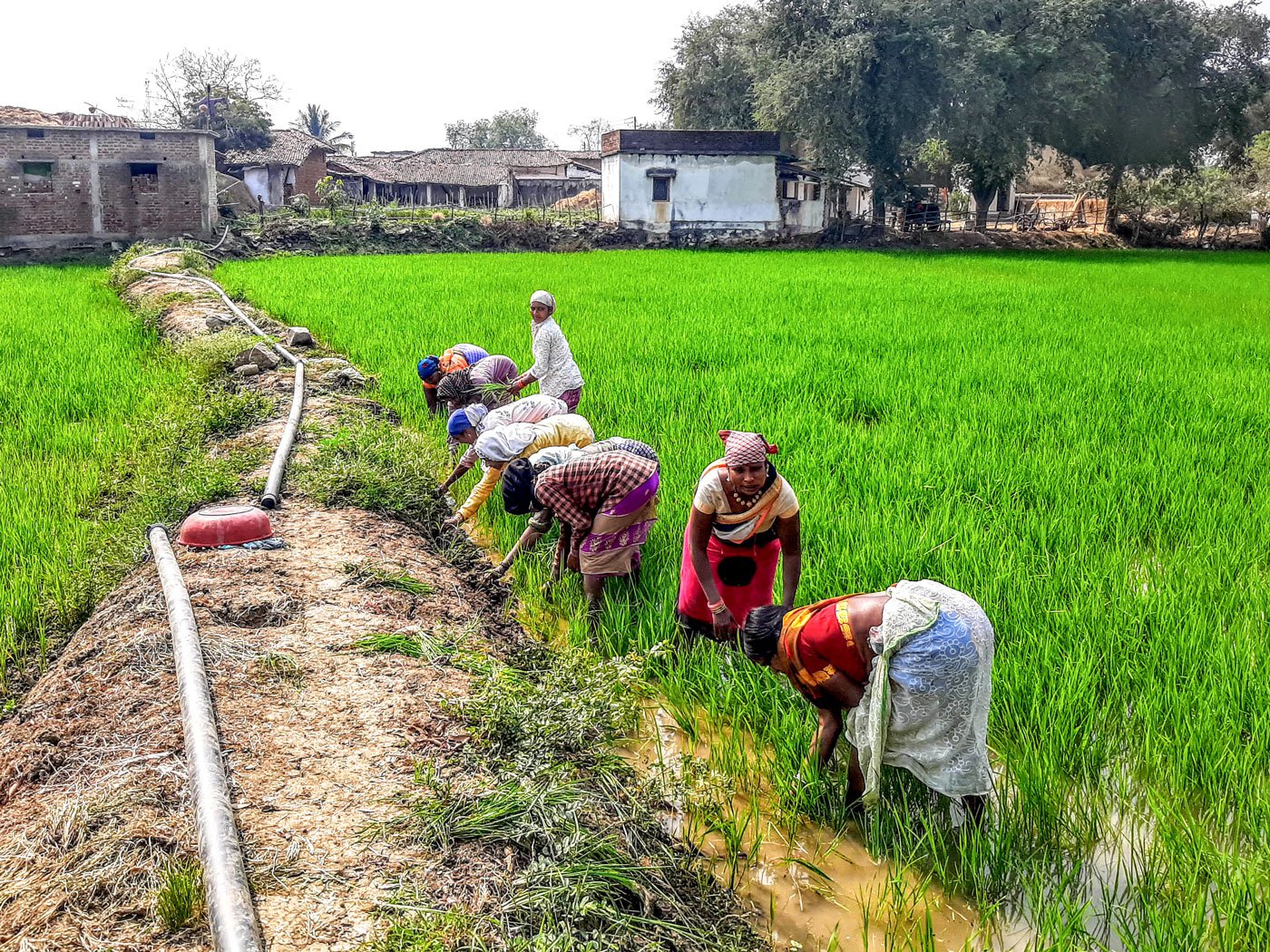
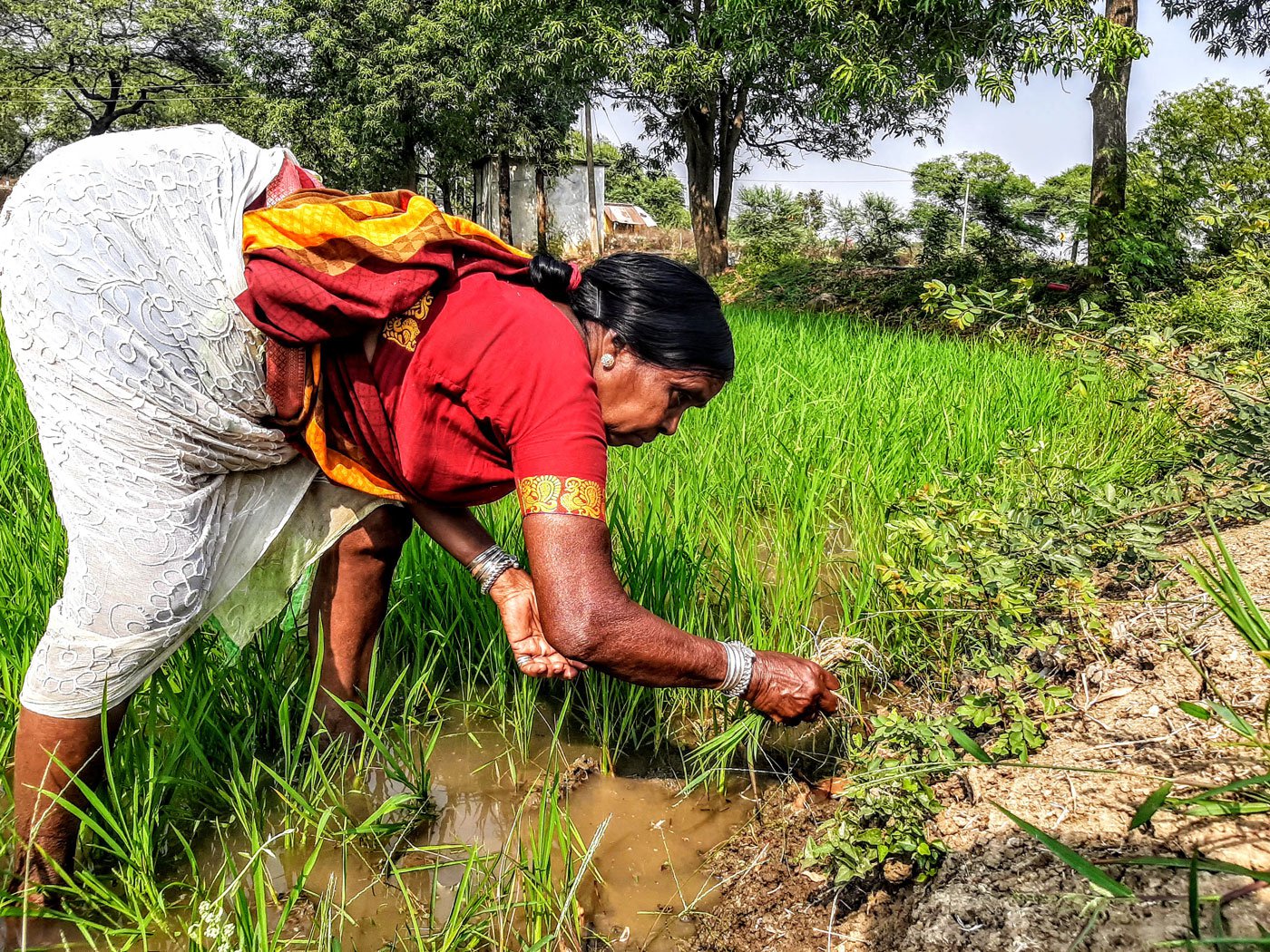
Left: Women at work in the paddy fields of Chhattisgarh. Right: Despite her age, Dugdi Bai Netam must work everyday
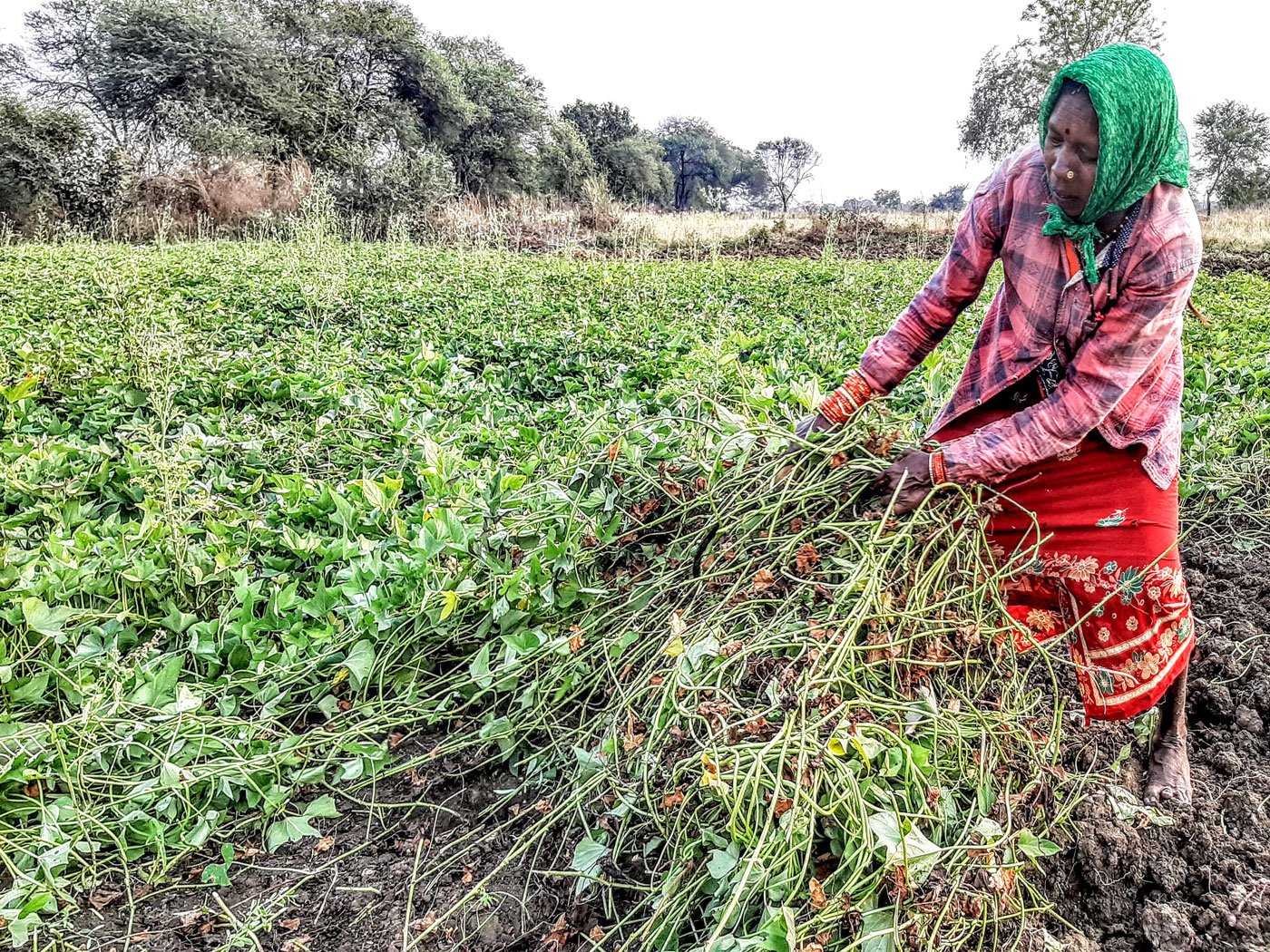
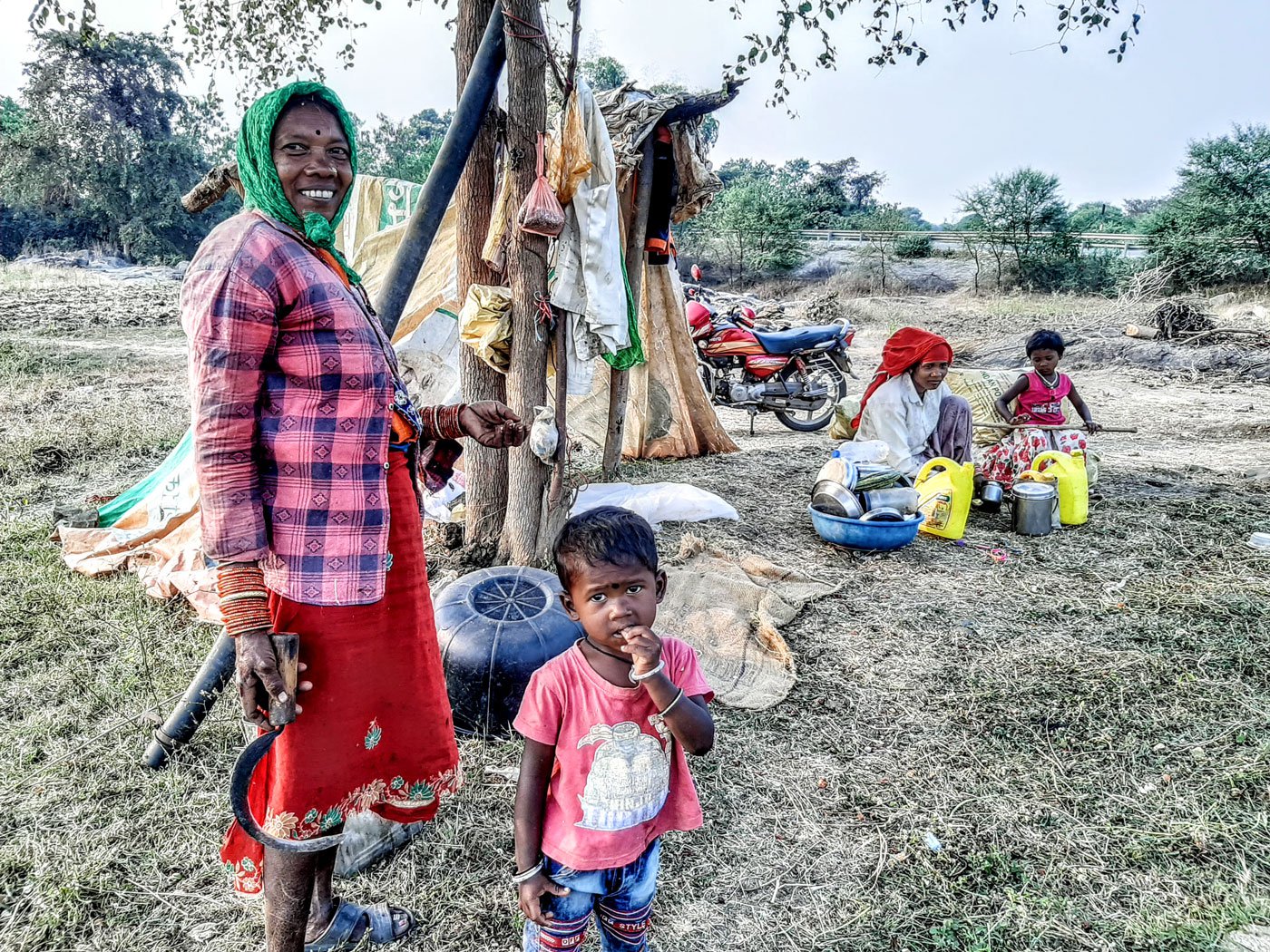
Uma Nishad is harvesting sweet potatoes in a field in Raka, a village in Rajnandgaon district of Chhattisgarh . Taking a break (right) with her family
Yallubai Nandiwale is watching the traffic on the Kolhapur-Sangli highway near Jainapur village as she takes a break. She sells combs, hair accessories, artificial jewellery, aluminium utensils and other such items that she carries in a bamboo basket and tarpaulin bag, and it weighs around 6-7 kilos.
She will be 70 years old next year and says her knees hurt whether she is standing or walking here in Kolhapur district of Maharashtra. And yet, she must do both or forego her daily income. “It’s hard to get even a hundred rupees; some days I get nothing,” she says, pressing her aching knees with her hands.
The septuagenarian lives with her husband Yallappa in Danoli village in Shirol taluka . They are landless and belong to the nomadic Nandiwale community.
“Interest in something, fun, leisure… [one] had before marriage,” she says smiling as she remembers happy moments from her youth. “I used to never be at home… roaming the fields… in the river. Nothing of that remains after marriage. Only the kitchen and children.”
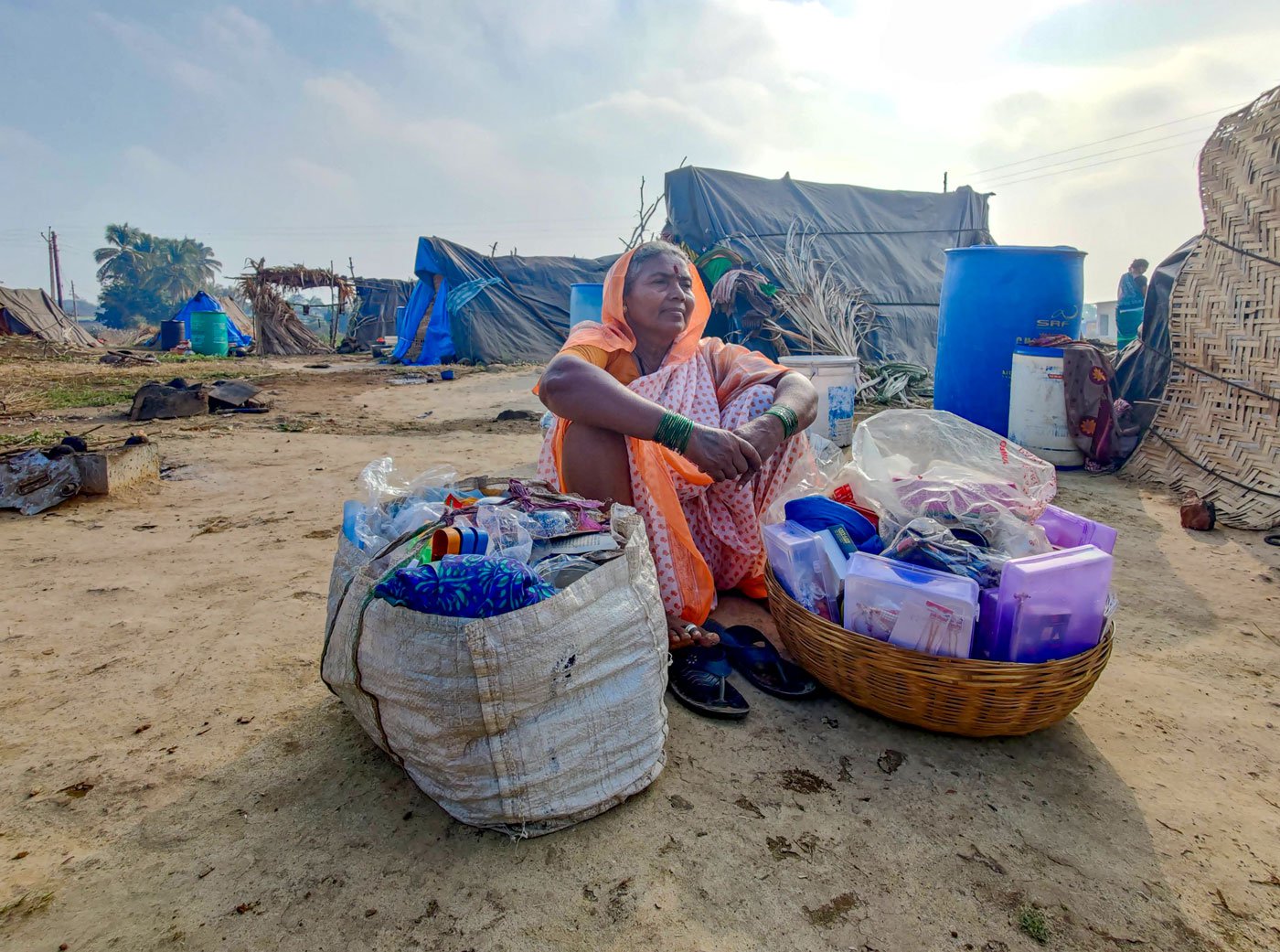
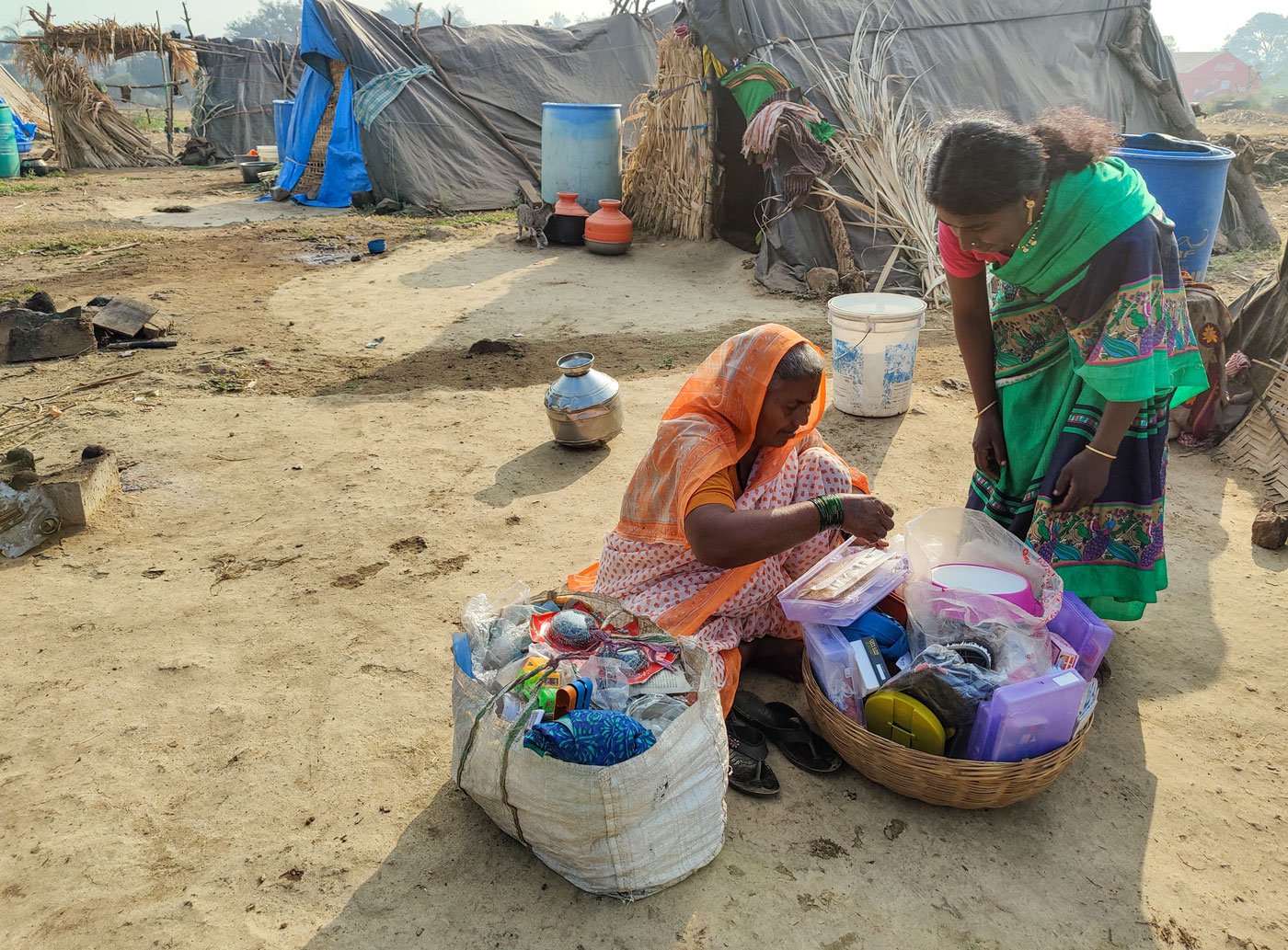
Left: Yallubai sells combs, hair accessories, artificial jewellery, aluminium utensils in villages in Kolhapur district of Maharashtra. The 70-year-old carries her wares in a bamboo basket and a tarpaulin bag which she opens out (right) when a customer comes along
Across the country, rural women spend roughly 20 per cent of their day in unpaid domestic work and caregiving activities, says a first-ever survey on the subject. The report is titled
Time Use in India-2019
and has been brought out by the Ministry of Statistics and Programme Implementation (MoSPI).
For many women in rural India, time off from their role as workers, mothers, wives, daughters and daughters-in-law is spent on household chores – making pickles, papads and stitching. “Any hand stitching work is relaxing for us. We choose a few old saris and cut and stitch them together to make a kathari [quilt] for the family,” says Urmila Devi who lives in Baithakva hamlet in Uttar Pradesh.
Taking the buffaloes for their daily swim in summer along with other women, counts among the pleasures of life for this 50-year-old anganwadi worker. “We get time to catch up on our news as our children play and jump around in the water of the Belan river,” she says and quickly adds that it’s nothing more than a stream in summer so children are safe.
As an anganwadi worker in village Deoghat in Koraon district, Urmila is busy through the week taking care of young mothers and their children, and noting down a long list of immunisations and other pre and post natal checks.
The mother of four adult children and grandmother to three-year-old Kunj Kumar, she held the elected post of gram pradhan of Deoghat from 2000-2005. She is among the handful of educated women in this largely Dalit hamlet. “I routinely tick off young girls who drop out of school and get married. But they don’t listen and their families don’t listen,” she says shrugging helplessly.
Weddings and engagements allow the women some time to call their own as then, “We sing together, we laugh together,” says Urmila. The songs centre around marital and familial relations and can get bawdy, she adds laughing.
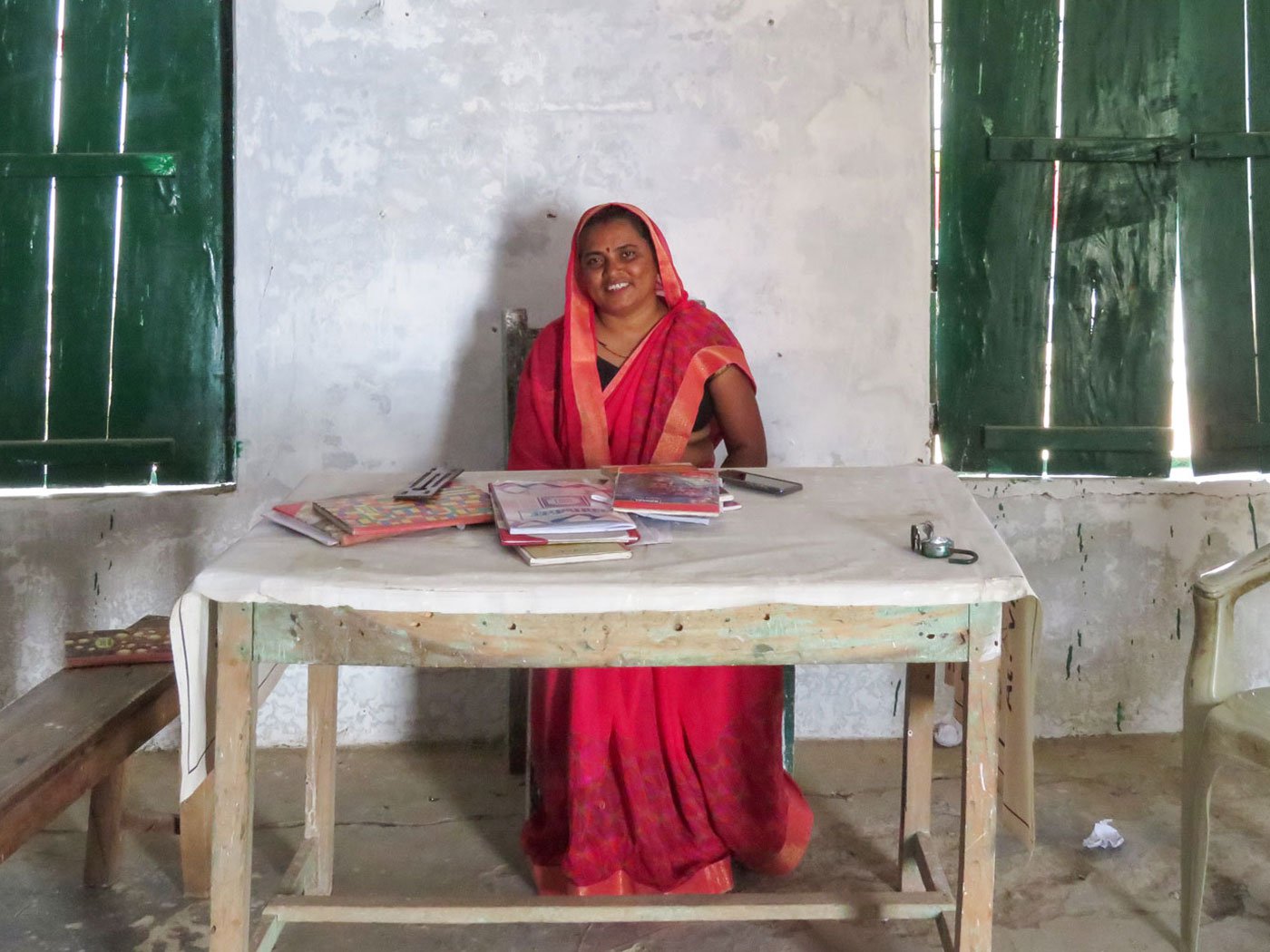
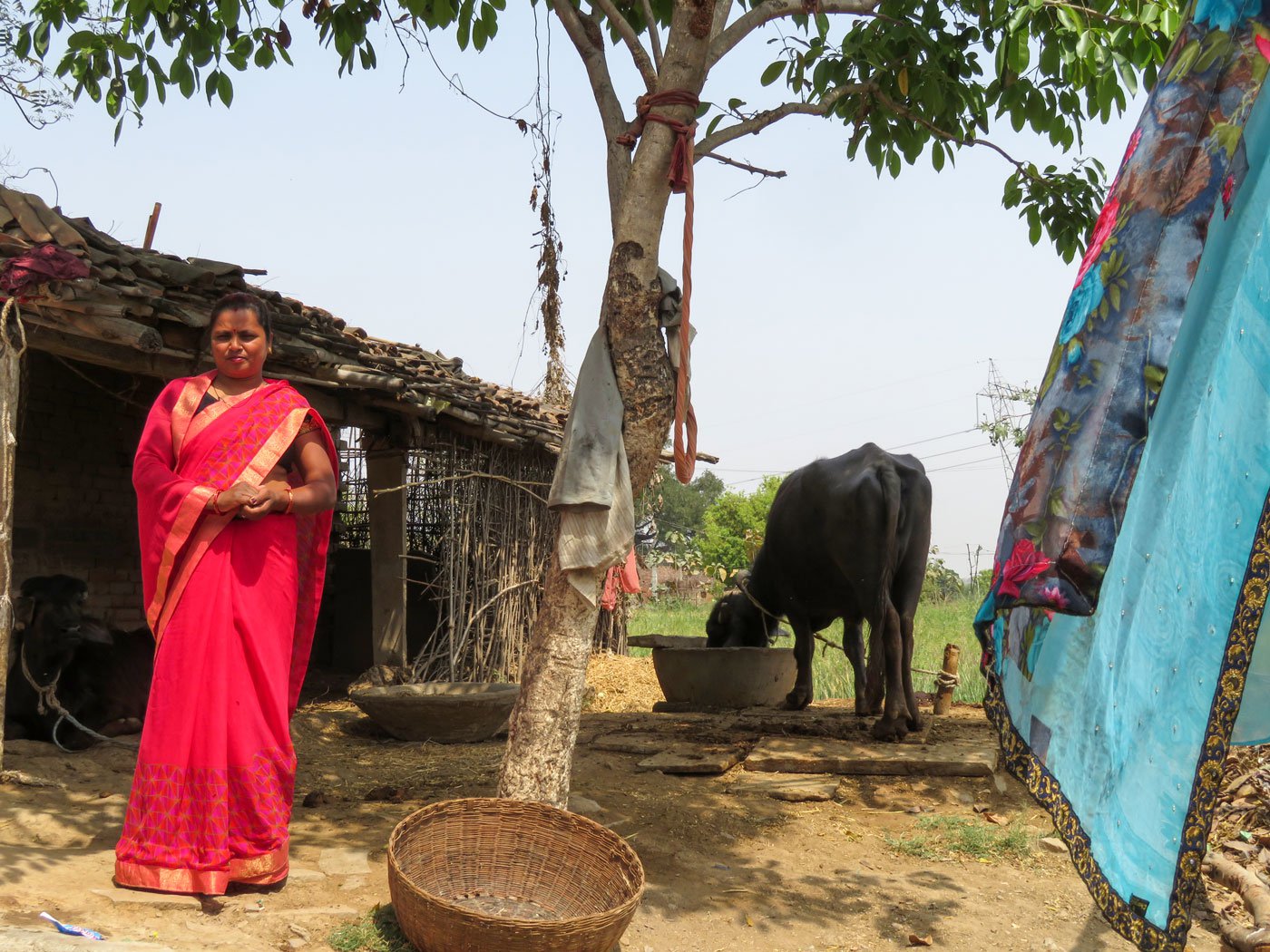
Left: Urmila Devi is an anganwadi worker in village Deoghat in Koraon district of Uttar Pradesh. Right: Urmila enjoys taking care of the family's buffalo
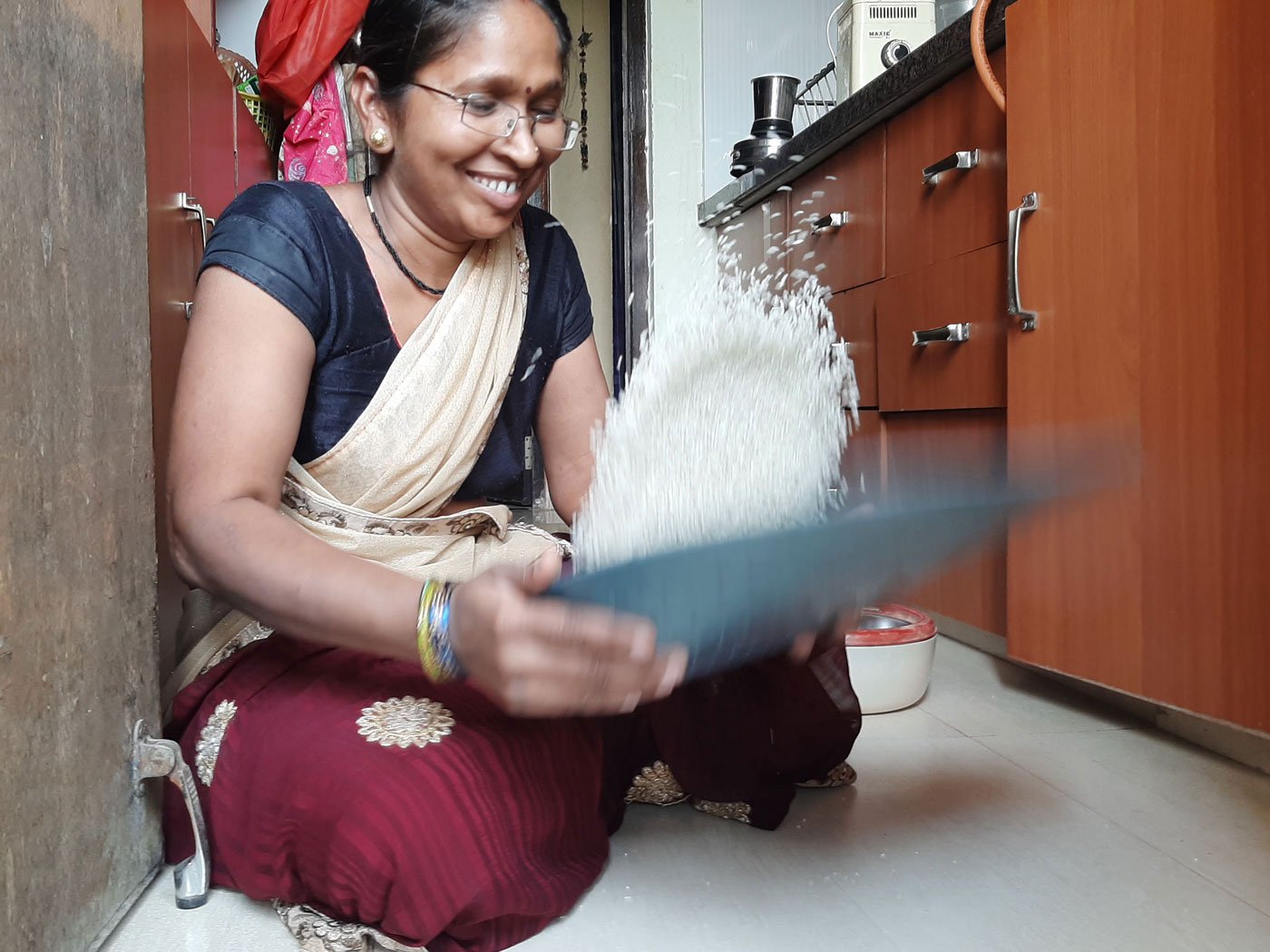
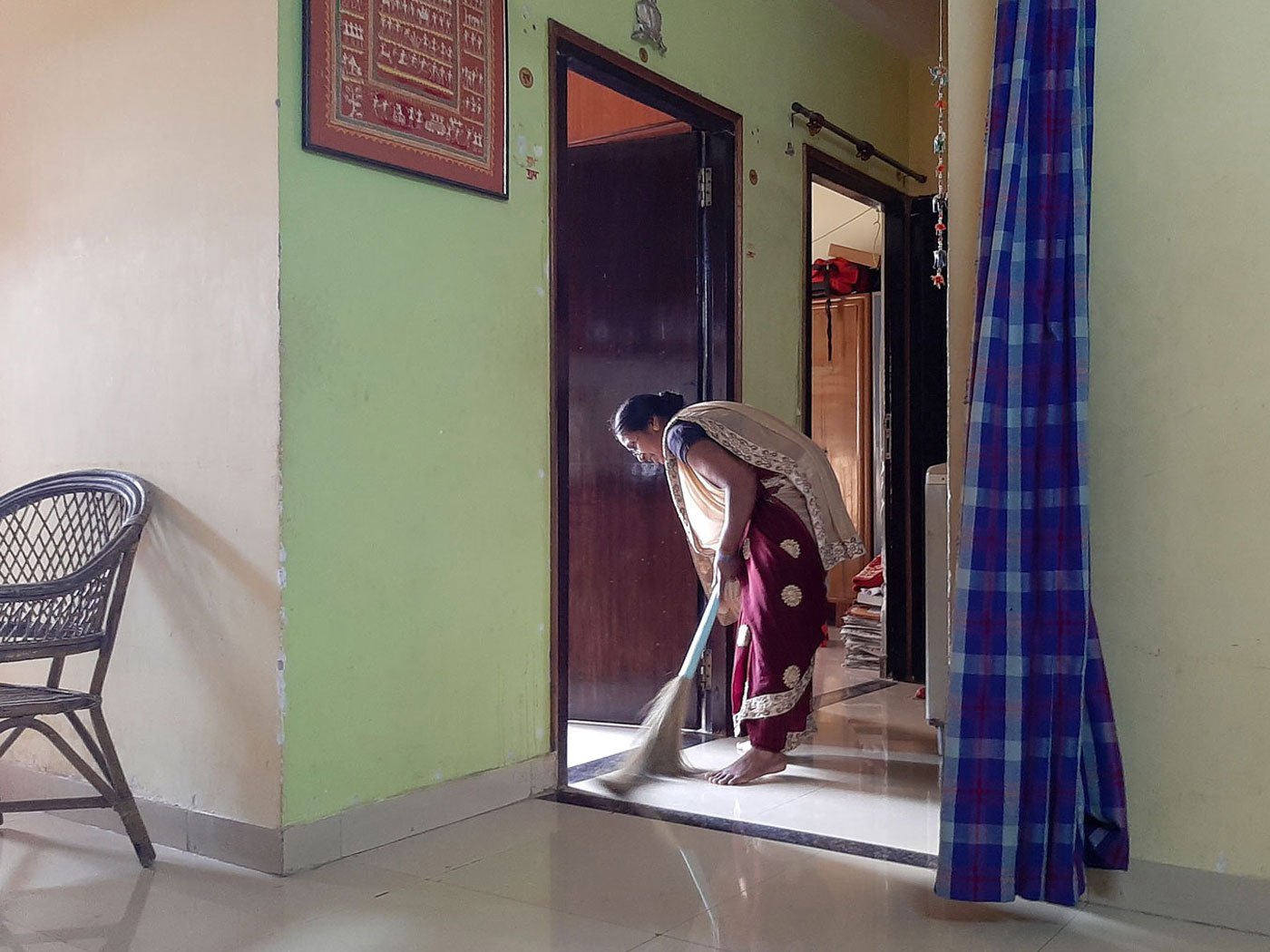
Chitrekha is a domestic worker in four households in Dhamtari, Chhattisgarh and wants to go on a pilgrimage when she gets time off
In fact, not just weddings but even festivals afford some time off for women, especially young girls.
Arati and Mangali tell PARI that the Bandna festival – celebrated by Santhal Adivasis of Birbhum in January – is what they enjoy the most. “We dress up, dance and sing. There is not much work as our mothers are home and we get time to be with our friends. No one scolds us and we do what we like,” says Arati. During this time the cattle are cared for by their fathers as they are worshipped during the festival. “I have no work,” says Mangali with a smile.
Pilgrimages also count as leisure, as Dhamtari resident, 49-year-old Chitrekha lists it to do in her free time: “I would like to go to the Shiv temple in Sehore district [in Madhya Pradesh] with my family for two to three days, I will take leave and go someday.”
A domestic worker in Chhattisgarh, she’s up at 6 a.m. to do her household chores before rushing around to serve four houses, and returning home at 6 p.m. The day’s labour brings in Rs. 7,500 a month and her earnings are critical for the family of five, including her two children and mother-in-law.
*****
A day without (paid) work for domestic worker Swapnali is rare. “I get only two holidays a month; I have to work on Saturdays and Sundays too as everyone [her employers] get their weekends off, so there’s simply no question of me getting a break on those days,” she explains. Her own need for time off is not even considered by her.
“My husband doesn’t have to work on Sunday. Sometimes he asks me to go watch a late-night movie, but I don’t have the courage, I must be at work the next morning,” she adds.
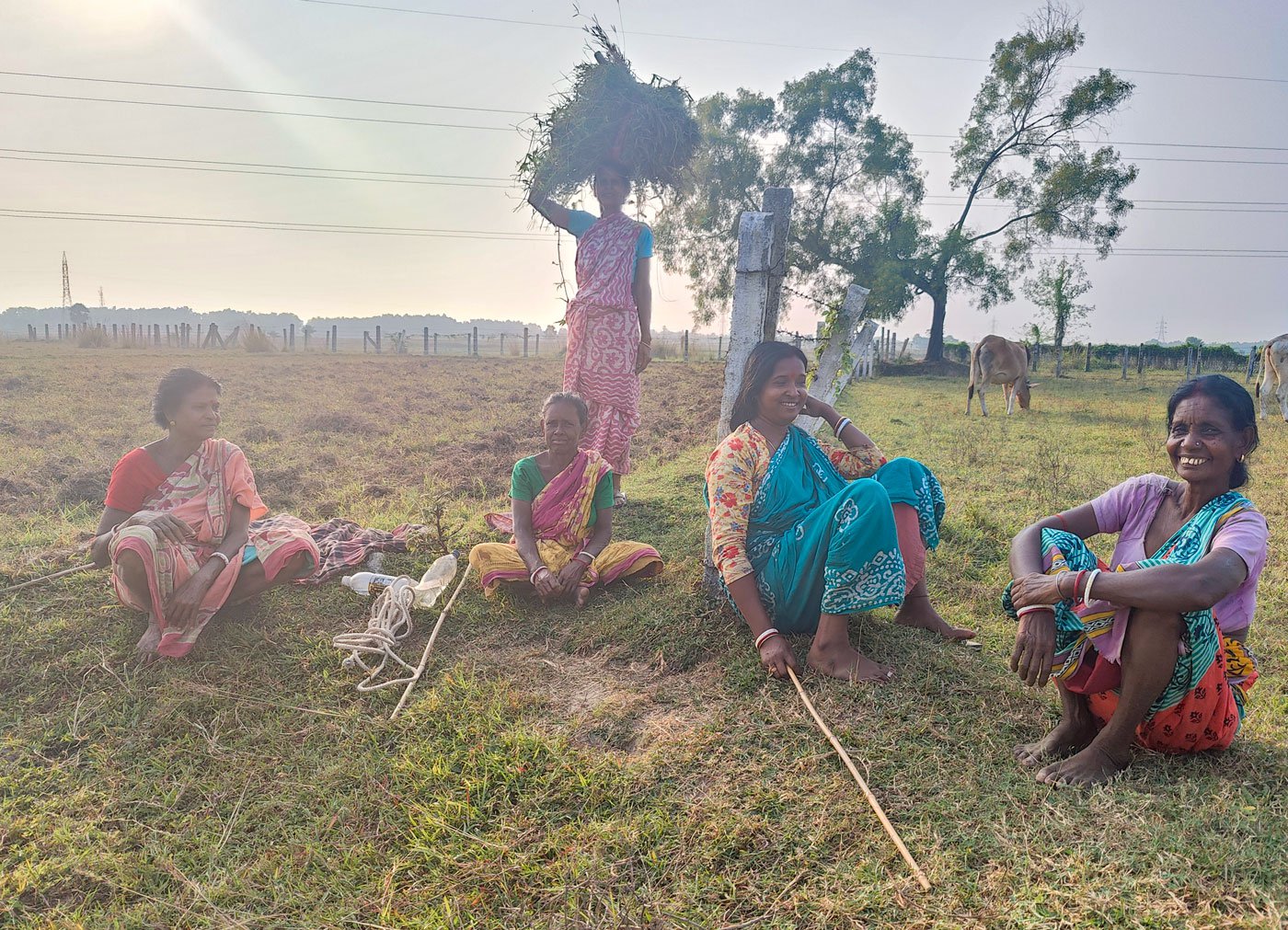
Lohar women resting and chatting while grazing cattle in Birbhum district of West Bengal
In homes where women do a variety of jobs to sustain their families, the work that they enjoy might morph into leisure. “I will go home and finish the household work – cooking, cleaning and feeding the children. Then I will sit to do kantha embroidery on blouse pieces and stoles,” says Ruma Lohar (name changed).
The 28-year-old from Adityapur village in Birbhum district of West Bengal is sitting with four other women near a grassy patch where their cattle are grazing. The women aged 28 to 65 are all landless and seek work in others’ fields. They are from the Lohar community, listed as Scheduled Caste in West Bengal.
“We have finished all the household work in the morning and have taken our cows and goats for grazing,” she says.
“We know how to make time for ourselves. But we don’t reveal it,” she adds.
“What do you do when you make time?” we ask.
“Mostly nothing. I just like to take a nap or talk to the women I like,” says Ruma looking meaningfully at the other women in the group. They all burst out laughing.
“No one thinks we ever work! Everyone says we [women] only know how to waste time.”
This story has been reported by
Devesh
and
Jyoti Shinoli
from Maharashtra;
Purusottam Thakur
from Chhattisgarh;
Umesh Kumar Ray
from Bihar;
Smita Khator
from West Bengal;
Priti David
from Uttar Pradesh, with editorial support from
Riya Behl, Sanviti Iyer
,
Joshua Bodhinetra
and
Vishaka George
, and photo editing by
Binaifer Bharucha
.
Cover photo: Smita Khator
